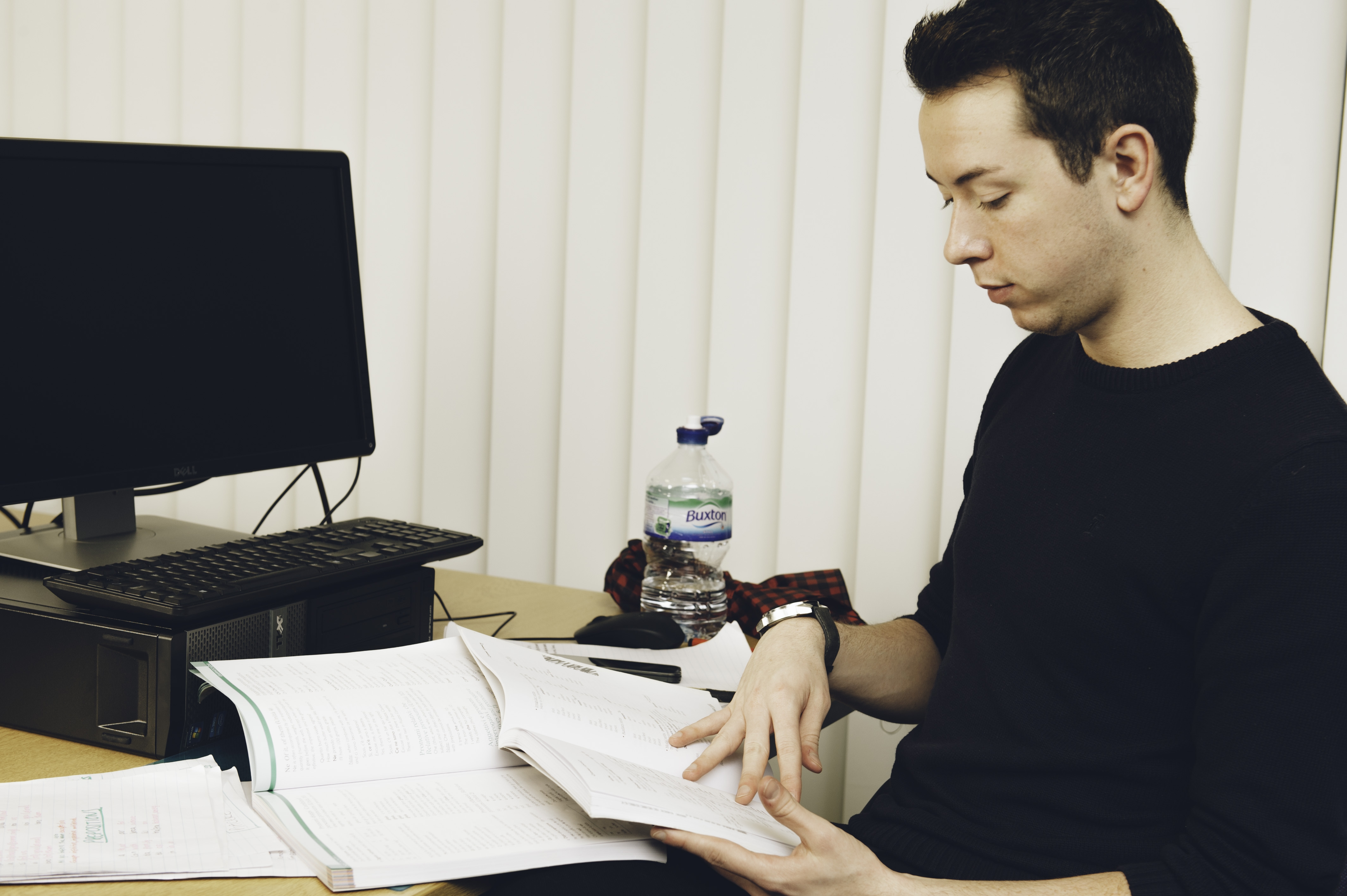Getting the right balance between study and your personal life can be challenging, especially if you have work, family, caring or other commitments as well.
How you manage your studies is in many ways a personal choice and everyone will have different strategies and techniques which work for them.

However, the key to success often lies in managing your time effectively whilst developing the skills needed for study at higher education level. Doing this will help you maximise the time you set aside for study, so that you can also make the most of opportunities to socialise, relax and enjoy your time as a student!
Be organised, plan your time
- Think about where you are going to study – at university, at home, at work if you are studying through your employer – and arrange a space that suits you. Make sure you have all the learning materials you need to hand before you get started.
- Treat study like a job. Examine your schedule and decide how much time you can set aside to study each week. Make sure you stick to this as closely as possible, it’s easy to fall behind if you aren’t disciplined.
- Make a note of all your assignment due dates at the start of the year (and regularly check them so there are no surprises!) You can find this information out from your course Blackboard sites, or by asking at your faculty office.
- Check your student email and Blackboard sites regularly for any changes to your timetable, assessment updates or other announcements about your modules.
- If you have to miss a class for any reason then try to catch up with work you have missed through your course Blackboard site or by speaking to your peers or your tutor next time you see them. If you have difficult personal circumstances which mean you are missing a lot of your teaching and struggling to catch up then tell your tutor or your Student Support Officer based in your faculty office – they will be pleased to offer help and guidance.

Develop your study skills
Study skills are strategies and techniques that enable you to make the most efficient use of your time, resources and academic potential.
There are a range of activities and resources available at SHU to help you boost your skills and help you master the basics of academic study. Why don’t you…
1. Take a look online at the range of resources available to help you with your academic work
Visit the Academic Skills Resources, a Blackboard organisation available to all students, where you will find
- Skills4studycampus, interactive online activities and modules to boost your academic skills
- The Toolkit, which provides online activities covering common queries people have about their academic work
You can also get help with finding and using information for your assignment from re: Search and can access a software tool that can help you with your referencing called RefWorks
2. Attend an academic skills workshop run by study skills tutors, on topics such as
- 10 tips to improve your academic writing
- Critical writing – how to shape your writing and focus on your critical voice
- Interpreting the question – analysing the question and getting started with drafting your work
- Lit review: getting started – how to critique
- Referencing basics – including the MS Word referencing tool
- Reflection / reflective writing – what it’s all about
3. Look out for Study Support Week, 24 – 28 November. This is a week of activities designed to help you prepare for exams, boost your study skills and remind you about free study support.

We’ll be publishing another post soon about how you can look after yourself whilst studying, but remember there is a range of student support services at Hallam to help you every step of the way. Visit the ‘Help and Support tab’ on shuspace for more information, or take a look at the Things not going so well or Info for… sections of our blog.
